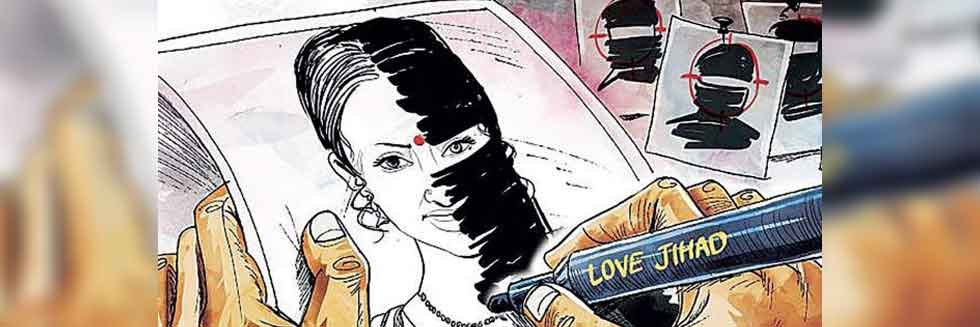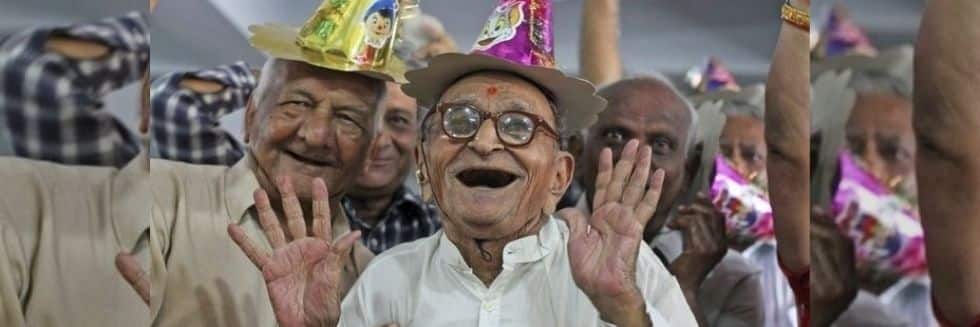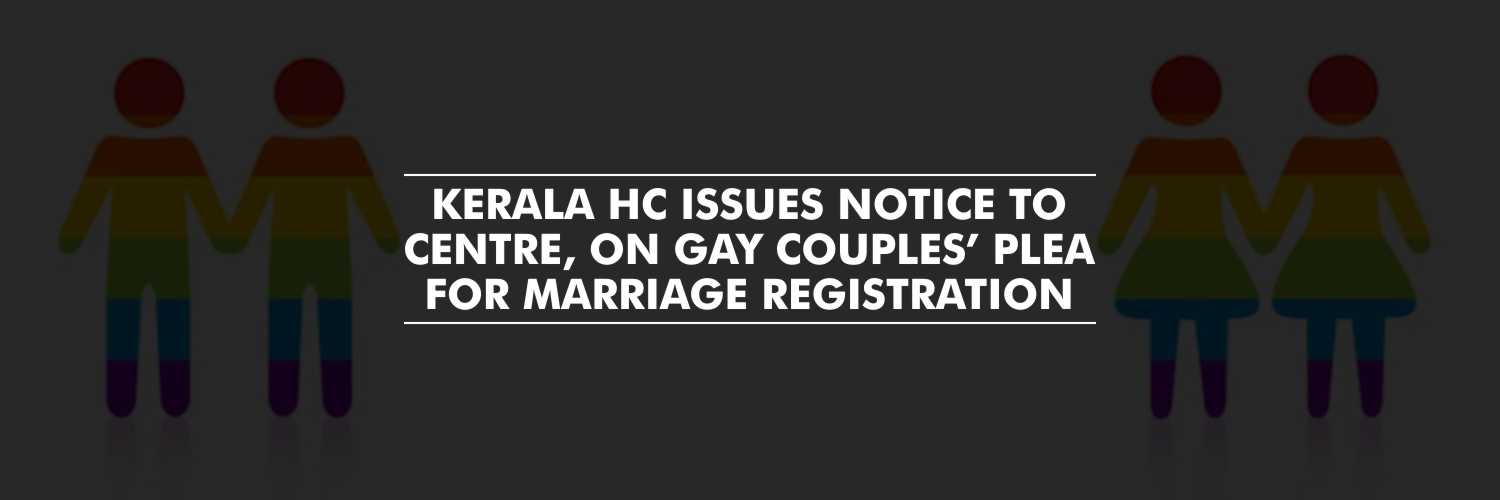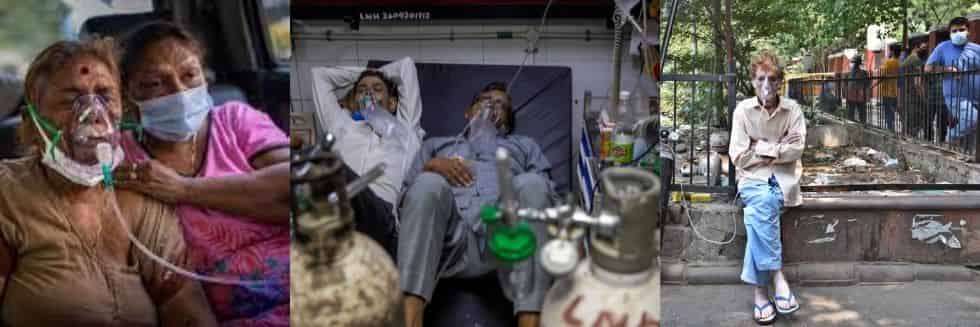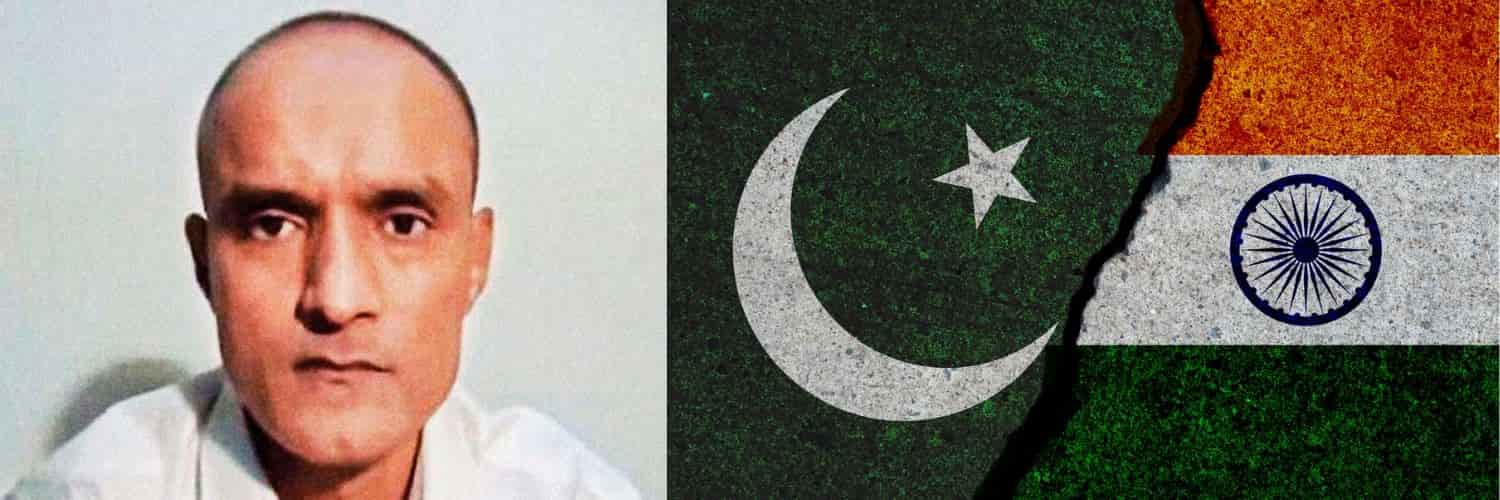Amid the ongoing debate on “Love-Jihad”, the Allahabad High Court has ruled that its previous decisions stating that religious conversion perse for contracting marriage was prohibited and that the said marriage has no sanctity in law, are incorrect, and did not lay down a good law.
A Division bench comprising of Justices Vivek Agarwal and Pankaj Naqvi held that the right to live with a person of one’s choice is intrinsic to the right to life and personal liberty, irrespective of religion. Further, the bench ruled that if an alleged conversion was under clout, the Constitutional Court was obliged to ascertain the wish and desire of the girls as they were above the age of 18 years.
Background of the case
The above observations were made while hearing a petition concerning a Hindu woman (Priyanka Kharwar) and a Muslim man (Salamat Ansari) who had entered into a Muslim marriage. It was reportedly submitted by the couple that they had entered into a Muslim marriage voluntarily and had been living together peacefully as husband and wife for a year.
However, the woman’s father lodged an FIR alleging offenses under Sections 363, 366, 352, and 506 of the Indian Penal Code (kidnapping, abduction for forcing a woman to marry, etc.) and Section 7 and 8 of the Protection of Children from Sexual Offences (POCSO) Act.
Therefore, the couple approached the High Court urging it to quash the FIR and protect the petitioners from arrest on the ground that the case was motivated by malice and mischief and initiated only with a view to bring an end to the marital ties. They further submitted that no offenses were made out, as the couple had attained the age of majority and thus was competent to contract a marriage.
Subsequently, the division bench of Allahabad HC noted that “To disregard the choice of a person who is of the age of majority would not only be antithetic to the freedom of choice of a grown-up individual but would also be a threat to the concept of unity in diversity.”
Earlier rulings of the High Court
While citing that its previous single-judge bench decision which held the religious conversion just for the purpose of marriage is unacceptable, is not good law, the bench referred to two earlier judgments which have now been declared as “not laying good law”. The judgments referred include the 2014 decision in Noor Jahan Begum @ Anjali Mishra and Another vs. State of U.P. and Others and followed in the recent case of Priyanshi @ Km. Shamren and others Vs. The State of U.P. and Another. The HC bench stated that the above two judgments did not deal with the issue of life and liberty of two mature individuals in choosing a partner or their right to freedom of choice regarding who they would like to live with.
“None of these judgments dealt with the issue of life and liberty of two matured individuals in choosing a partner or their right to freedom of choice as to with whom they would like to live. We hold the judgments in Noor Jahan and Priyanshi as not laying good law” added the division bench of Allahabad HC.
Observations by the HC – ‘Infringement of Article 21 Of the Constitution of India’
Pertinently, the division bench emphasized “The Courts and the Constitutional Courts, in particular, are enjoined to uphold the life and liberty of an individual guaranteed under Article 21 of the Constitution of India. Right to live with a person of his/her choice irrespective of religion professed by them is intrinsic to right to life and personal liberty. Interference in a personal relationship, would constitute a serious encroachment into the right to freedom of choice of the two individuals. We fail to understand that if the law permits two persons even of the same sex to live together peacefully then neither any individual nor a family nor even State can have any objection to the relationship of two major individuals who out of their own free will are living together. Decision of an individual who is of the age of majority, to live with an individual of his/her choice is strictly a right of an individual and when this right is infringed it would constitute a breach of his/her fundamental right to life and personal liberty as it includes the right to freedom of choice, to choose a partner and right to live with dignity as enshrined in Article 21 of the Constitution of India.”
Further, the court held that “It did not see Priyanka Kharwar and Salamat (the petitioners in the present case) as Hindu and Muslim, rather as two grown-up individuals who out of their own free will and choice had been living together peacefully and happily over a year.”
“Right to live with a person of his/her choice irrespective of religion professed by them, is intrinsic to the right to life and personal liberty,” the court asserted while adding that “Interference in a personal relationship would constitute a serious encroachment into the right to freedom of choice of the two individuals.”
Referring to certain observations made by the Supreme Court in connection with “honor killings”, the High Court added that the said principle would apply in the present context as well, where a relationship of two matured individuals was sought to be jeopardized at the whim and caprice of a parent.
On the other hand, while dealing with the contention of the informant-father that he be afforded visiting rights to meet his daughter, the court held that once the daughter had attained majority, it was her choice, as to whom she would like to meet. However, the court expect the daughter to extend all due courtesy and respect to her family added the bench.
The court further clarified that it was not commenting on the ‘the validity of alleged marriage/ conversion,’ but was canceling the case, as no offenses were proved and that the ‘two grown-up individuals are before us, living together for over a year of their own free will and choice.’
